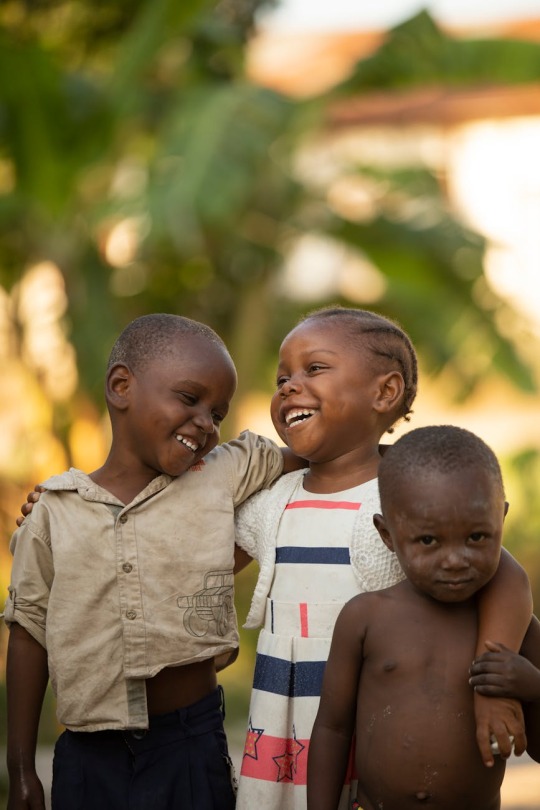#zulu language
Explore tagged Tumblr posts
Text

antibody - amasosha omzimba
asymptomatic - ongabonisi izimpawu
contact tracing - ukulandela umkhondo wabahlangene nonegciwane
contagious - thelelanayo
coronavirus - igciwane lekhorona
Covid-19 - ikhovidi-19 or i-Covid-19
face mask - imaskhi or isamfonyo
hand sanitizer - isibulali magciwane sezandla
pandemic - ubhubhane
pneumonia - inyumoniya
symptom - uphawu
to vaccinate - goma
vaccine - umuthi wokugoma
virus - igciwane
6 notes
·
View notes
Video
youtube
PROPHET THEOPHILA SECHOPO: UKUKHOLWA (To Believe) | DAILY JESUS PRAYER |...The Mission That ONLY You Can Fulfill...Happy Sunday & stay blessed!!
🙏🙏🙏
https://youtu.be/v_v3wGgZcxU?si=vBOo1CDhGXKD7fp9
#youtube#morning#prayer#uplifting quotes#theophila sechopo#praise#worshitposting#worship#carletonville#faith and transformation#religion#christianity#sunday#ukukholwa#electicvista#gospel#south africa#sfiso ncwane#church#prophecy#bible teachings#morning live worship#daily#dailyjesusdevotional#daily love poems#daily Jesus prayer#Sunday relaxation#instagram#zulu language#xhosa language
1 note
·
View note
Text
Online Zulu Language to English Translation Services: Trusted Zulu-English Translators
Zulu Language to English Translation: Bridging Cultural Divides with Quality Linguistic Services In today’s interconnected world, language barriers can often hinder effective communication and limit access to valuable information. The Zulu language, spoken by over 10 million people primarily in South Africa, is a prime example of a rich cultural heritage that can benefit greatly from quality…

View On WordPress
#Cultural Bridges#English translation#Human Expertise#inclusivity#Language Access#Language Preservation#Language Services#LanguageXS#Linguistic Challenges#Linguistic Resources#translation challenges#Translation technology#Zulu Interpretation#Zulu Language
0 notes
Text

Tracklist:
Ibuyile I'Africa / Africa is Back • Dipolelo/ Recite • Zawose (for Hukwe Zawose) • Cello Sonata No. 7 in D Major, I. 84: I. Adagio • Cello Sonata No. 7 in D Major, I. 84: II. Allegro • Cello Sonata No. 7 in D Major, I. 84: III. Largho • Cello Sonata No. 7 in D Major, I. 84: IV. Presto • Qhawe / Hero • Hlokomela / Take care • Lerato / Love • Seipone / Mirror • Cello Suite No. 3 in C Major, BWV 1009: IV. Sarabande • Invocation • Ka Bohaleng / On the Sharp Side • Cello Suite No. 5 in C Minor, BWV 1011: IV. Sarabande • Ancestral Affirmations
Submitter's Note: highly recommend looking at the digital booklet linked here
Spotify ♪ YouTube
#hyltta-polls#polls#artist: abel selaocoe#language: instrumental#language: sesotho#language: zulu#language: swahili#decade: 2020s#Classical#Throat Singing#Township Singing#Ancestral Anthems#Folk
11 notes
·
View notes
Text
I don't know Zulu, but I can read some IPA, so I'll give it a shot! (Implosives are still really hard for me, but i tried.)
(if anyone actually does know Zulu though, I'd love to hear a native pronunciation)
Ultimate Word Tournament!
mačka (Bosnian, Croatian) machka [mât͡ʃka] a cat.
mbaqanga (Zulu) [mɓaˈǃáːŋga] a style of South African music with rural Zulu roots that combines traditional elements (such as chanting and drumming) with elements of modern music (such as jazz).
159 notes
·
View notes
Text

1 kwabase Thesalonika 4:16-17 ngokuba iNkosi uqobo iyakwehla ezulwini ngezwi lenhlokomo, ngephimbo lengelosi enkulu nangecilongo likaNkulunkulu, nabafileyo kuKristu bayakuvuka kuqala, khona thina, esisekhona sisasele siyakuhlwithwa kanye nabo emafwini, sihlangabeze iNkosi emoyeni; kanjalo-ke siyakuba nayo iNkosi njalo.
16 For the Lord himself will descend from heaven with a cry of command, with the archangel’s call, and with the sound of the trumpet of God. And the dead in Christ will rise first; 17 then we who are alive, who are left, shall be caught up together with them in the clouds to meet the Lord in the air; and so we shall always be with the Lord. — 1 Thessalonians 4:16-17 | Ibhayibheli Elingcwele (Zulu Bible) Revised Standard Version (RSV) Ibhayibheli Elingcwele: The complete Bible in isiZulu (1959/1997 Version) and the Revised Standard Version of the Bible, copyright © 1946, 1952, and 1971 the Division of Christian Education of the National Council of the Churches of Christ in the United States of America. All rights reserved. Cross References: Joel 2:11; Matthew 16:27-28; Matthew 24:31; Matthew 25:31; 1 Corinthians 15:18; 1 Corinthians 15:20
Read full chapter
Who are the dead in Christ?
#Lord#descend#heaven#shout#archangel's call#God's trumpet#resurrection of the dead#caught up in the clouds#eternity#1 Thessalonians 4:16-17#The Epistle of First Thessalonians#New Testament#Zulu (language) Bible#Ibhayibheli Elingcwele#RSV#Revised Standard Version Bible#National Council of the Churches of Christ in the United States of America
10 notes
·
View notes
Text
what is wrong with my duo, now...


i found these in the same lesson...
#zulu#language stuff#language learning#language#linguistics#english language#english#vocabulary#learning languages#duolingo on crack#duolingo#languages
29 notes
·
View notes
Text
Exploring untranslatable words unveils the intricacies of linguistic diversity. Consider the Hawaiian term "Aloha," encompassing love, affection, peace, and compassion – a multifaceted concept difficult to distill into a single English equivalent. In Haitian Creole, "Kouzin" refers to an extended family-like relationship, going beyond mere cousinship.
The Japanese term “Komorebi,” which beautifully captures the interplay of sunlight filtering through leaves. In Spanish, there’s “Sobremesa,” embodying the leisurely time spent lingering at the table after a meal, a social ritual deeply ingrained in the culture.
Moving to German, “Waldeinsamkeit” conveys the feeling of being alone in the woods and the connectedness with nature, a sentiment not effortlessly translated. In Portuguese, “Saudade” encompasses a profound sense of longing, a complex emotional state that doesn’t have a direct equivalent in many languages.
In Russian, “Pochemuchka” describes a person with an insatiable curiosity, while the Swedish “Mångata” captures the shimmering reflection of the moon on water. These examples showcase the intricate relationship between language and culture, emphasizing how some concepts are so intricately woven into the fabric of one language that they resist easy translation.
Korean introduces "Han," representing a complex blend of sorrow, resentment, and enduring resilience. The Chinese term "Yùyī" expresses the profound beauty of a moment that is both fleeting and transient. In Tagalog, "Kilig" encapsulates the exhilarating feeling of being romantically thrilled.
Portuguese contributes "Desenrascanço," embodying the ability to improvise resourcefully in challenging situations. Italian introduces "Sprezzatura," an effortless and nonchalant display of skill and style. Zulu presents "Ubuntu," conveying interconnectedness and shared humanity.
Tongan offers "Faka'apa'apa," a deep respect and humility towards others. Afrikaans contributes "Geselligheid," reflecting a warm sense of togetherness and camaraderie. Navajo introduces "Hozhǫ́," symbolizing beauty, harmony, and balance. In Warlpiri, "Ngarrka-ngku" encapsulates the profound interconnectedness between family and the land.
These examples illustrate the richness of linguistic diversity, where each language crafts unique expressions reflecting the depth of cultural experiences. While it's challenging to cover every language, these glimpses showcase the beauty of untranslatable words across a variety of linguistic landscapes.
#langblr#language#german#hawaiian#‘olelo#deutschland#spanish#portuguese#russian#korean#japanese#navajo#warlpiri#tongan#afrikaans#italian#zulu#chinese#tagalog#filipino#swedish#haitian creole#chatgpt#untranslated
17 notes
·
View notes
Text
youtube
ASMR teaching you Zulu by African Xhosa ASMR
4 notes
·
View notes
Note
what is it about each of her dads that hazina loves most about them? :]
HELLOOO spinny this is an extremely late response for which I apologise but here is your answer!!
starting off with bunga, her papa!! hazina’s favourite thing abt her papa is definitely all the games they play together and just how fun he is in general. bunga’s always keeping hazina entertained somehow, and is also the closest to her otherwise. i’d say bunga’s probably who hazina wants to be like most (in terms of personality and such). another thing which she loves abt him would be how he’ll always find termites for her to eat; he just *knows* where to find em!
second comes ono, hazina’s tata (bemba for father)! hazina’s favourite thing about her tata is probably how caring he is, and how he always has bedtime stories for her. ono WILL conjure up a story in less than 3 seconds for his daughter if necessary!! idk if I’ve mentioned it before, but ono’s the most mother hen-like of the three of them (though beshte is a close second). he’s always looking out for hazina, and goes to great lengths to childproof the games bunga invents for her lol.
lastly, hazina’s baba (swahili for father), beshte!! hazina absolutely loooves hanging out with her baba. he likes to take her around the pridelands or the tree of life (wherever they may be) and let her explore and meet new people. of course, at first hazina was really shy abt it but she grew to enjoy it and got more confident :D! beshte’s also the most indulgent baba and he is the weakest of the three to hazina’s puppy eyes, so hazina enjoys that in her own kid way too, haha.
thanks for the ask spinny!! this has been in my drafts for a while, and recently the hazina brainrot struck so I rewrote and changed some stuff up a bit. hope you liked it :D
#asks#the lion guard#tlg oc#tlg hazina#tlg bunga#tlg ono#tlg beshte#baobabfruit#baobabfruitshipping#the mutuals tag#also fun thing when i was thinking of what hazina would call her dads i was gonna go for variants of Dad but then realised africa has#a lovely collection of different languages and went on a research speedrun a while back#it helped me decide where i want them to be from too !!#was actually going for ubaba for bunga which is zulu for father#but then nikki replied papa bunga on one of my posts and i was like that sounds way too perfect to Not use /silly pos
4 notes
·
View notes
Text

Zulu
2 notes
·
View notes
Text

English - Xhosa - Zulu
Bird - Intaka - Inyoni
Cat - Ikati - Ikati
Cow - Imazi - Inkomazi
Dog - Inja - Inja
Elephant - Indlovu - Indlovu
Fish - Intlanzi - Inhlanzi
Horse - Ihanshe - Ihhashi
Pig - Ihagu - Ingulube
Rabbit - Umvundla - Unogwaja
Sheep - Igusha - Imvu
Squirrel - Unomatse - Ingwejeje
#isizulu#isixhosa#xhosa#Zulu#language learning#langblr#languages#vocabulary list#animal vocabulary#new langblr
62 notes
·
View notes
Text
youtube
Moses Mchunu - Qhwahilahle (Zulu?)
#afrobeat but there's what sounds like a fiddle#moses mchunu#qhwahilahle#zulu#isizulu#zul#bantu#nigercongo#africa#south africa#1985#1980s#folk#world#what language is this#Youtube
3 notes
·
View notes
Video
youtube
Sdala B & Paige #NgiyazifelaNgawe EP live performance
#youtube#Sdala B#Paige#NgiyazifelaNgawe#EP live performance#music#culture#dance#zulu#language#dancers#artist on tumblr#Paige voice is amazing#twin#twin dancers#stunning
4 notes
·
View notes
Link
4 notes
·
View notes
Text
I just can't figure it out!

??????????????????????????????????????????
6 notes
·
View notes